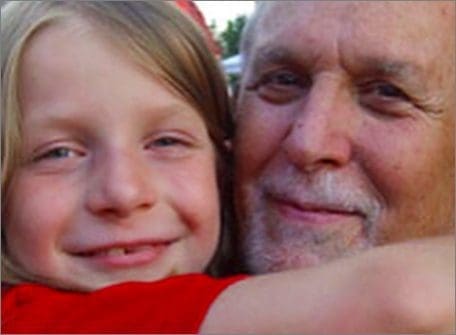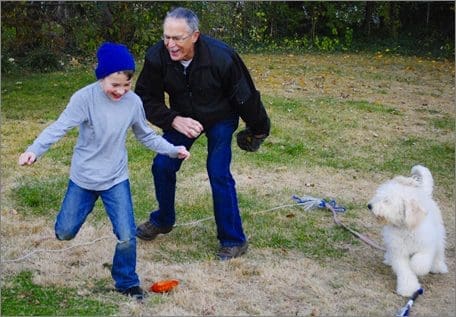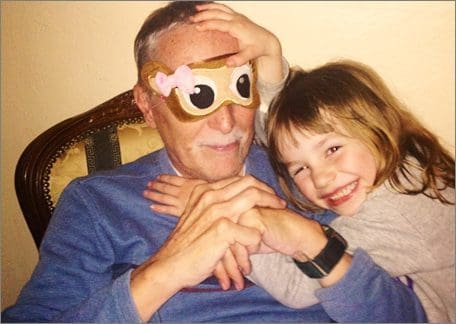They loved their grandpa despite that fact that he teased them mercilessly. Or maybe because of it.
So how do you explain cancer to grandchildren? And how do you help them through their loss? Here are three ways:
1. Communicate honestly. Our oldest grandchild, Lilly, was four years old when Hubby was diagnosed. Her parents told her what she needed to know at the time, explaining that even though Grandpa looked well, he was sick and trying to eat more healthfully. Lilly loved baking cookies with me and her grandpa loved stealing spoonfuls of cookie dough. The four-year-old kept a close eye on him and tattled when necessary. (It was frequently necessary.)
Being honest is always best. Information should be given in doses based on the child’s age and ability to understand, including information about the grandparent’s death as the time draws near. It’s equally important to prepare children for funerals. According to an article entitled “The Toughest Talk You’ll Ever Have” at www.grandparents.com, kids benefit from attending funerals and other celebrations of life. “Some will want to speak about the lost grandparent at a funeral, or pay tribute by singing or playing an instrument, and, if at all possible, those wishes should be accommodated.”
2. Provide an outlet for saying good-by. Daughter Summer was with us in Oregon as Hubby was dying while SIL Josh held down the fort with the three grandkids in Jersey. Summer and Josh asked the kids to each write a letter to their grandpa, which were read to him:
“You played a big role in my life and I have really looked up to you,” penned the 14-year-old. “No matter how annoying your jokes are and how much you like the Broncos … you have always made me smile.”
The 12-year-old boy, a tease just like his grandfather, wrote, “We were always teasing each other who would win the Super Bowl (the Seahawks won, by the way). … I love you and remember all the fun times I had with you.”
“I hope you feel good soon,” wrote the 6-year-old. “Jesus will take good care of you, really good care of you. I miss you.”
The letters provided a good outlet for the grandchildren to say good-by. And the 12-year-old ended up reading his letter at his grandfather’s Celebration of Life service.
3. Keep memories alive. After Hubby died, I flew east to spend Christmas with the munchkins. I didn’t want my kids or grandkids to feel uncomfortable talking about their dad and grandfather in front of me. So I brought him up in conversation several times.
“Grandpa would have thought that was funny.”
“Remember when you were four and you called Grandpa ‘George’ before he got a chance to call you ‘George’?!”
While tucking in the 6-year-old: “Grandpa would say, ‘Good-night, sleep tight, don’t bite the bed bugs!’”
I suspect children are more resilient than we think. All three of our grandchildren have done well with their grandpa’s death, even though they’ve expressed how much they miss him.
And I suspect for the rest of their lives, the three munchkins will remember their fun, cookie-dough-stealing, take-you-to-Barnes&Noble, baseball-playing, corny-joke-telling grandfather.




Leave a Reply